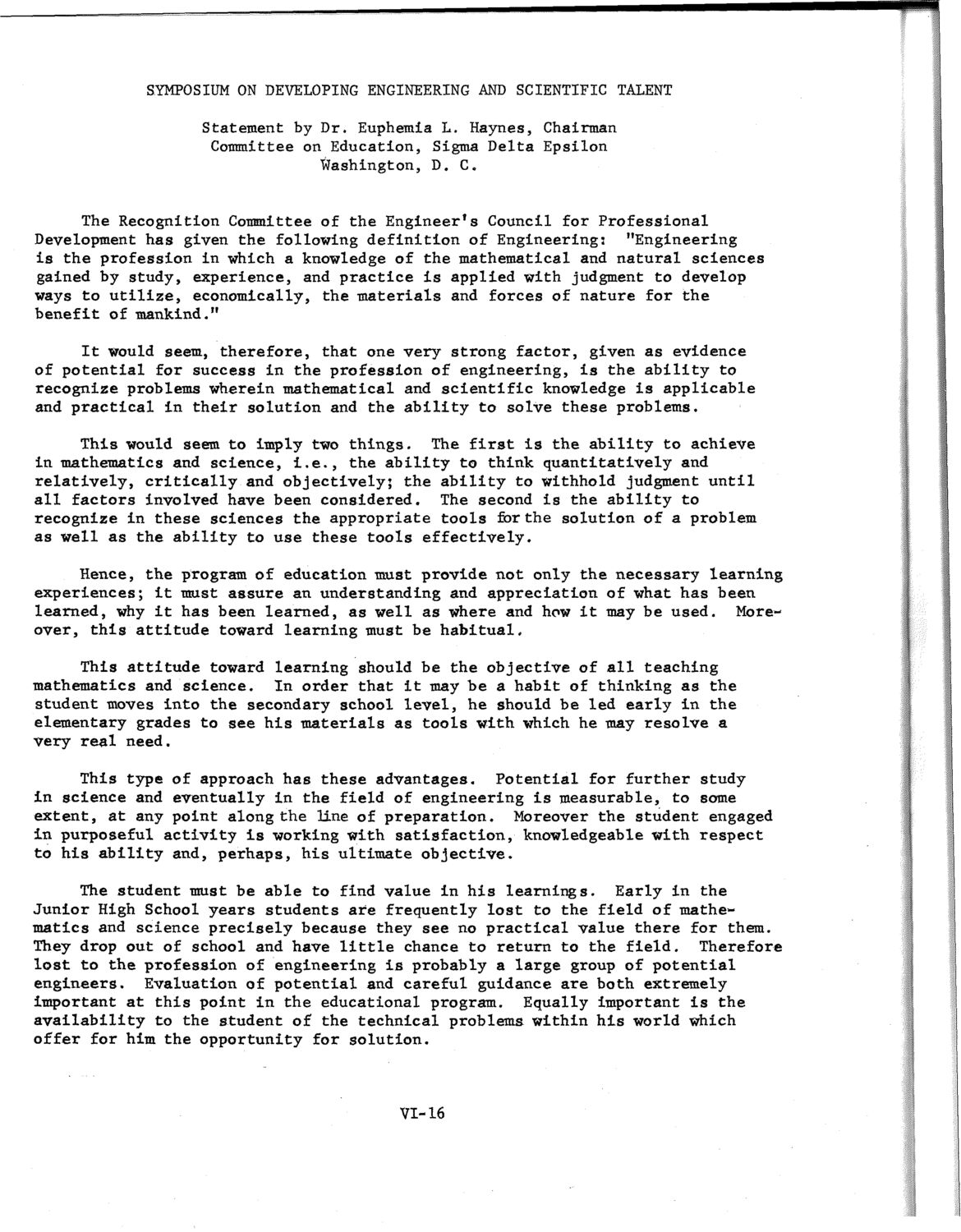| |
| |
Caption: SWE - Proceedings of the First International Conference of Women Engineers and Scientists
This is a reduced-resolution page image for fast online browsing.

EXTRACTED TEXT FROM PAGE:
SYMPOSIUM ON DEVELOPING ENGINEERING AND SCIENTIFIC TALENT Statement by Dr. Euphemia L. Haynes, Chairman Committee on Education, Sigma Delta Epsilon Washington, D. C. The Recognition Committee of the Engineer's Council for Professional Development has given the following definition of Engineering: "Engineering is the profession in which a knowledge of the mathematical and natural sciences gained by study, experience, and practice is applied with judgment to develop ways to utilize, economically, the materials and forces of nature for the benefit of mankind." It would seem, therefore, that one very strong factor, given as evidence of potential for success in the profession of engineering, is the ability to recognize problems wherein mathematical and scientific knowledge is applicable and practical in their solution and the ability to solve these problems. This would seem to imply two things. The first is the ability to achieve in mathematics and science, i.e., the ability to think quantitatively and relatively, critically and objectively; the ability to withhold judgment until all factors involved have been considered. The second is the ability to recognize in these sciences the appropriate tools for the solution of a problem as well as the ability to use these tools effectively. Hence, the program of education must provide not only the necessary learning experiences; it must assure an understanding and appreciation of what has been learned, why it has been learned, as well as where and how it may be used. Moreover, this attitude toward learning must be habitual. This attitude toward learning should be the objective of all teaching mathematics and science. In order that it may be a habit of thinking as the student moves into the secondary school level, he should be led early in the elementary grades to see his materials as tools with which he may resolve a very real need. This type of approach has these advantages. Potential for further study in science and eventually in the field of engineering is measurable, to some extent, at any point along the line of preparation. Moreover the student engaged in purposeful activity is working with satisfaction, knowledgeable with respect to his ability and, perhaps, his ultimate objective. The student must be able to find value in his learnings. Early in the Junior High School years students are frequently lost to the field of mathematics and science precisely because they see no practical value there for them. They drop out of school and have little chance to return to the field. Therefore lost to the profession of engineering is probably a large group of potential engineers. Evaluation of potential and careful guidance are both extremely important at this point in the educational program. Equally important is the availability to the student of the technical problems within his world which offer for him the opportunity for solution. VI-16
| |